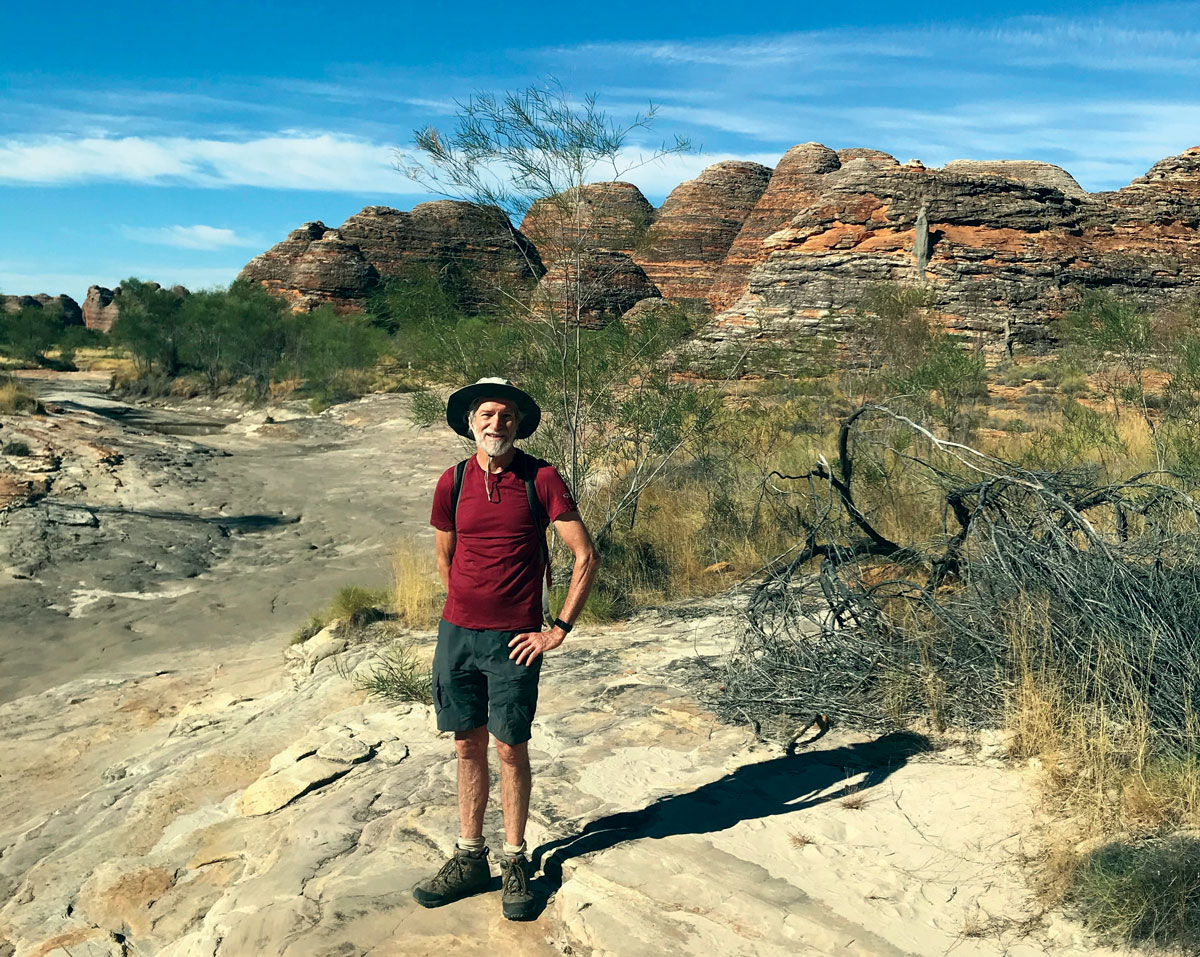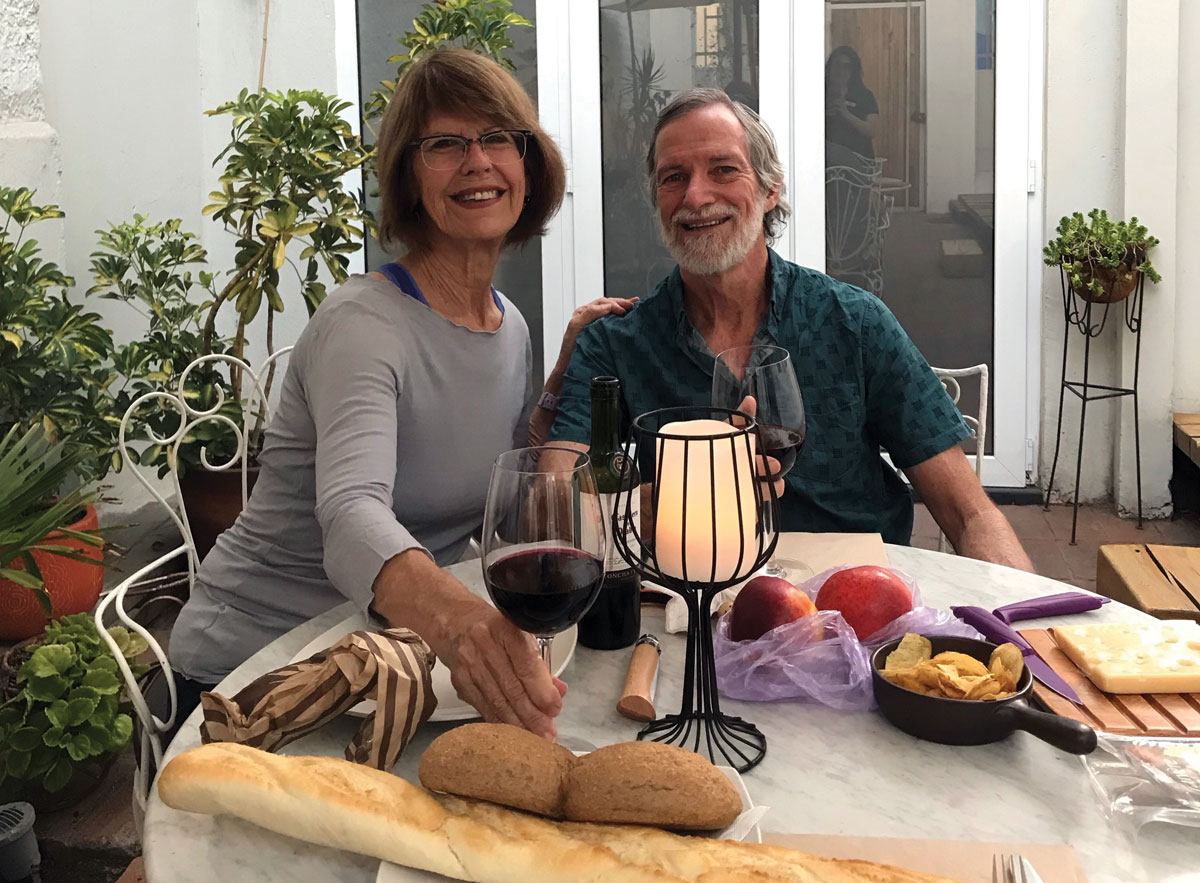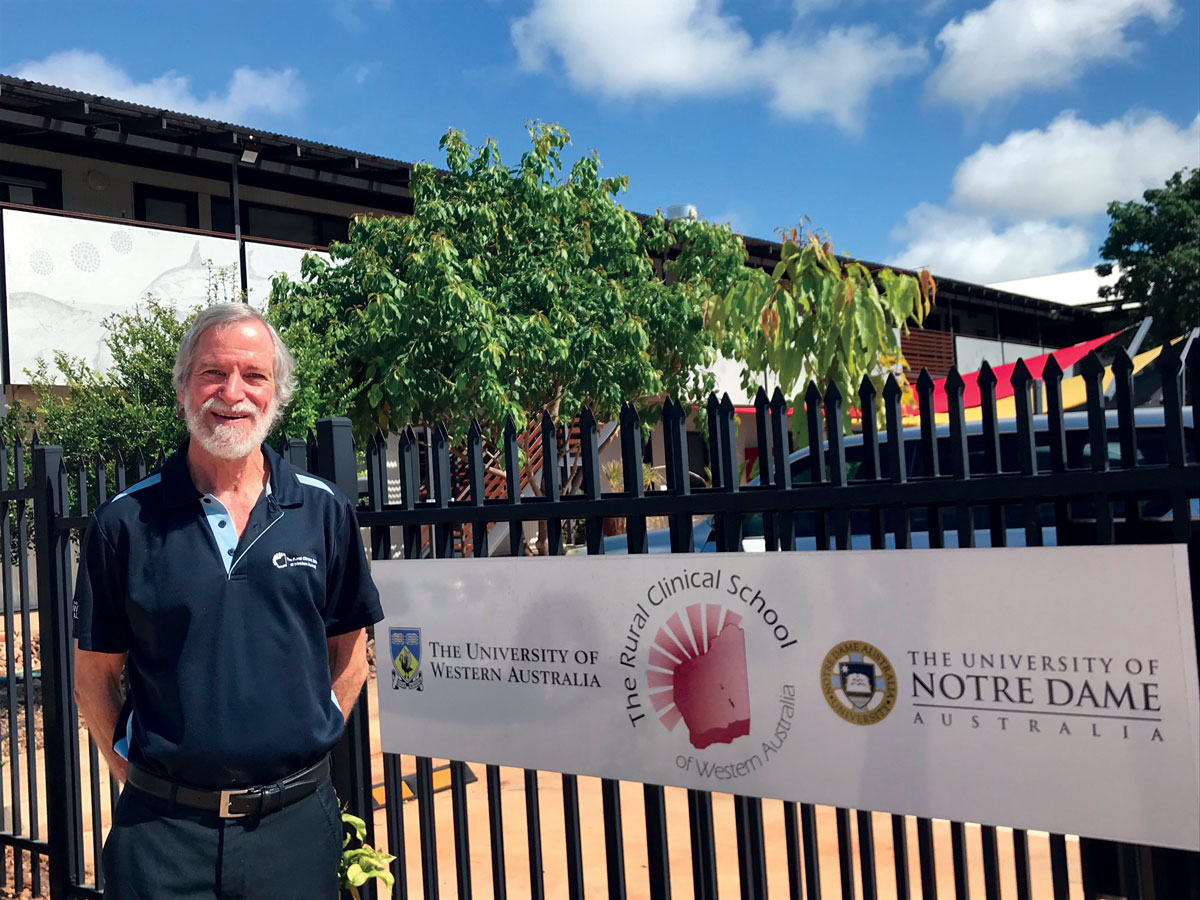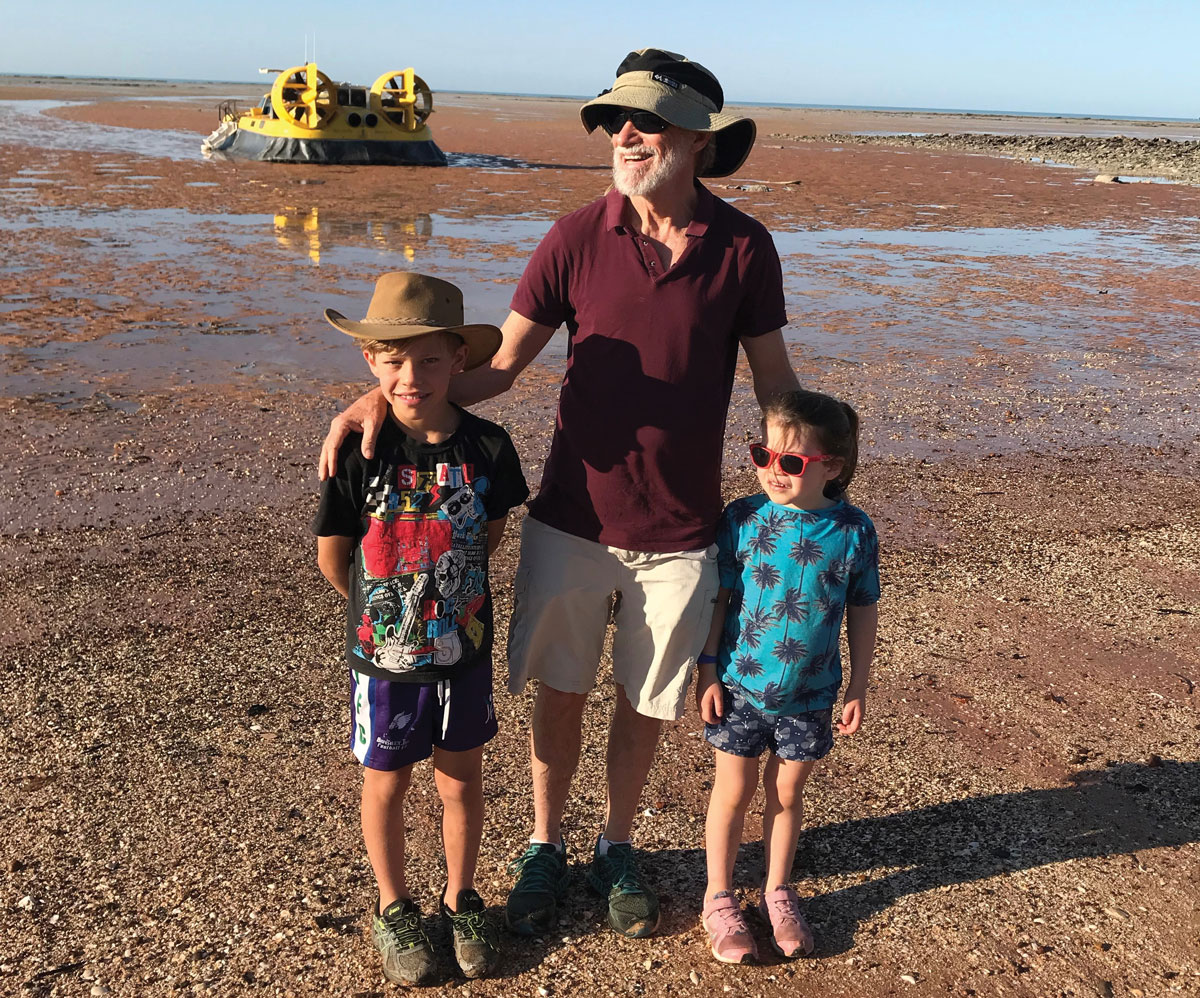
A staunch advocate for improved Aboriginal health, Professor David Atkinson has spent much of his career in regional Western Australia and wants to ensure the bush has well-trained, quality doctors.
David Atkinson never really made career plans. Turns out, he relied largely on the telephone because when it rang there was always an interesting offer on the other end.
He thinks about it quite a bit – how did he end up in medicine?
From David’s recollection it was a case of what seemed interesting, other students were planning to study medicine and it would get him a job. It was the 1970s and there was a family expectation that David would go to university. Hailing from ‘the other side of town’ and a not terribly affluent family, he suggests his expensive school probably helped open the doors.
“Medicine interested me because of the complexity of what I learnt,” he said. “I have seriously eclectic interests when I can indulge them. I think mostly I enjoyed the clinical exposure. My parents died when I was in my second and third year. I met Sue, who became my wife, in fourth year and we took a year off, saved money and went overseas.”

Sue and David have been married for 42 years and she recently retired from her career as a social worker.
David is known for his decades-long work in Aboriginal health, particularly in training medical students and young doctors as well as doing research in areas of maternal and child health, chronic disease and aged care. He’s a staunch advocate for practical outcomes to improve the effectiveness of health services for Aboriginal people.
When he was doing his internship at Fremantle Hospital, his sister was teaching in remote Aboriginal communities. He visited her and something sparked.
Destination Darwin
When it came time to finding a job after his internship, David accepted one in Darwin. With a wife and two young children in tow, the work kicked off a now life-long interest in Aboriginal health.
“I jumped in and jumped in deep,” David said. “We had a lot of responsibility as junior doctors and learnt quickly. The consultants were also pretty young and I found that encouraging.”
David spent a month in Gove, in the northeastern corner of Arnhem Land and then six months as a solo GP in Jabiru, inside Kakadu National Park.
“I got involved in local politics there and had a lot to do with the locals working in the construction camp. I also had a number of patients who were the Asian wives of these older men who didn’t treat them very well. I got involved in helping them, made a bit of noise and became politically unpopular.”
The Atkinsons ended up back in Perth and David didn’t want to work in a hospital, so he took on a series of GP-related jobs. Turns out, regional and outback life wasn’t finished with him. Over the years David said he stopped planning each time the phone rang, because it was usually an opportunity to consider.
While in Perth, David also worked for the then Perth Aboriginal Medical Service, which left a lasting imprint on his career.
With no long-term career plan in mind, a job at Fitzroy Crossing seemed the perfect answer and it became David’s formative career experience. The 29-year-old was GP to more than 2000 people spread across 50,000 square kilometres. The closest other doctors were in Halls Creek and Derby.
“I spent three and a bit years there. That was the mid to late ’80s and Aboriginal health has improved quite a lot since those days, particularly for kids.
“This work fostered a great interest in public health initiatives that made a difference, such as public housing.
Learning from elders
“One of my favourite activities was volunteering to talk about health at the Karrayili Adult Education Centre. I used to go there once a fortnight and have discussions with a group that included many of the local elders. That really developed my understanding of the place and its people.
“We welcomed marban (traditional healers) at the hospital, so if someone wanted one, we went and found him. It was important for the patients to feel safe.
“As the only doctor in town you have to understand where everyone comes from and who gets on with who. In Fitzroy Crossing I had to learn the local language groups, understand how to not get too close to one group as you had to be there for everyone.”
The Atkinson children (a third son was born while there) had their formative years in Fitzroy Crossing and lived a different life from their city friends. The fact that they’ve gone into law, social work and medicine feels like a definite link to those regional experiences. Let’s not forget a doctor dad and a mother in social work.
“I think it had an influence on them in different ways,” he said. “The youngest has ended up being a regional doctor in the Northern Territory.
“I think those experiences have had the greatest influence on my middle son – they have definitely influenced his personality and view of life. He’s always had a sense of social justice which I attribute to his outback experiences.
“He used to walk home from school – 3km – and it was really hot. He’d walk via the Aboriginal community, chose not to take the bus and made his own way home. He was highly independent. It took him a while to adapt to being back in Perth.
“My eldest son is a rural lawyer in a small town. His work supporting clients has many similarities to rural medical practice.”
David eventually did a master’s in public health through UWA which led to research work and student supervision. He was the founding director of the Centre for Aboriginal Medical and Dental Health at UWA (1996-2002) recruiting and supporting Aboriginal people to study medicine and increasing Aboriginal health teaching in the medical course.

RCS is born
In 2002, the opportunity to return to the Kimberley came as David became a founding member of the UWA Rural Clinical School, establishing the Kimberley branch of the rural medical education program in collaboration with the Kimberley Aboriginal Medical Services (KAMS).
As well as teaching medical students, it also led to him establishing the Kimberley GP training program for KAMS in partnership with Western Australian General Practice Education and Training (WAGPET). This program has led to a large increase in the number and skills of Australian training doctors working in remote Aboriginal health in the Kimberley.
Eventually the phone rang again leading David to become the head of the Rural Clinical School of WA (RCSWA), now a combined program between UWA and Notre Dame. He held the job from 2015 to 2018.
Along the way, David won the General Practice Education and Training (GPET) Ochre Recruitment Aboriginal and Torres Strait Islander Health Training Award in 2012 for his role in increasing the number of registrars taking up Aboriginal health posts in the Kimberley. He also received the GPET General Practitioner Supervisor of the Year Award in 2009.
A longtime and reasonably permanent resident of Broome, David says part of his work now is to help make sure the Kimberley and regional Western Australia have well-trained and quality doctors living and working outside Perth.
“We want to train and keep regional doctors here,” he says. “We want to do enough regional research to give them relevant information.
“It’s also about setting up circumstances so doctors want to come and work regionally. For example, one of the first things you have to do is find them a place to live so they don’t have to fuss. You need to care for them from day one. You want to do all the little things which make someone feel welcome and wanted. That way, when issues arise, they feel supported.”
Sharing knowledge
The 64-year-old currently splits his time between the Rural Clinical School, though he is no longer head, and works as a GP. He works with students in their second last year of medicine who are on rural placement for their first major clinical year. The hope is that the students enjoy the experience of living out of Perth enough to consider returning once they have qualified.
While he has been in Broome for 18 years, David says he gets bored easily, which is why his CV has a lot of different positions on it.
“At the moment, GP work is the most fulfilling part of my job as opposed to being on committees. That also has its rewards but I don’t want to do it all the time. The same goes for being in charge and making all the decisions. I think I’ve done my share of taking the responsibility.”
That slight change of pace is giving David and Sue the chance to further enjoy what’s around Broome, which included a recent trip to the Bungle Bungles, spending time with their six grandchildren and growing their own vegetables.

“I love contributing to the gardening and eating the results.”
Indulging a mutual love for bushwalking, particularly multi-day hikes, has seen the pair lace up their boots in Tasmania and Patagonia and on New Zealand’s Milford Track and Peru’s Inca Trail. Next trip will be to resurrect their recently cancelled walk along Scotland’s 154km long West Highland Way.
“One of the things I love the most is genuinely working with younger people to help them do what they want to do. I like having students or doctor trainees. That’s really rewarding,” he said.
“I feel the same about my patients. I want to be helpful. I’m in relationship with them and when that’s strong we can get into the issues. If you don’t have a good relationship with people or gel with them when they need something, they might not return. Particularly with adolescents and the disadvantaged – connecting with a 12-year-old can be quite a challenge.
“It’s people I’m interested in – and I always have been. They’re probably my great fascination.”

